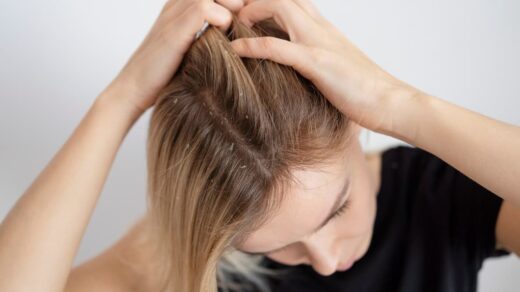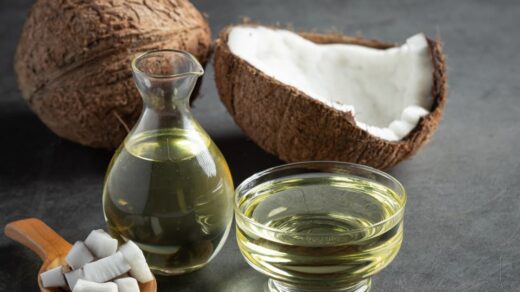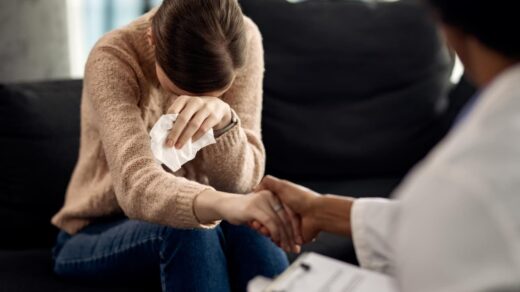Have you ever felt a painful, annoying bump in your ear? If so, you’re not alone. Ear pimples are a common problem that many people face.
They can be uncomfortable, painful, and sometimes even embarrassing. But don’t worry – with the right knowledge and care, you can manage and prevent these pesky bumps.
In this comprehensive guide, we’ll dive deep into the world of ear pimples. We’ll explore what causes them, how to get rid of them, and when you should seek medical help.
Understanding Ear Pimples: Causes, Treatment, and Prevention

We’ll use simple language and break down complex ideas so that anyone can understand, even if you’re not familiar with medical terms.
So, let’s begin our journey to understanding those troublesome ear pimples!
What Are Ear Pimples?
Before we go further, let’s clarify what we mean by ear pimples:
- Ear pimples are small, often painful bumps that appear in or around your ear
- They’re a type of acne that can show up anywhere on your ear
- These pimples can be found on your earlobe, inside your ear, or even in your ear canal
- They’re usually red and may have a white or yellow head
What Causes Pimples in Ears?
Now, let’s dive into the main causes of ear pimples. Understanding why these pimples form is the first step in preventing and treating them.
- Excess Oil Production
Your skin naturally produces oil (sebum) to keep itself healthy and moisturized. But sometimes, things can go overboard:
- Overactive oil glands can produce too much sebum
- This excess oil can clog your pores
- Clogged pores are the perfect breeding ground for acne-causing bacteria
- Dead Skin Cell Buildup
Your skin is constantly renewing itself, shedding old cells and creating new ones. But sometimes, this process doesn’t work perfectly:
- Dead skin cells can accumulate on the surface of your skin
- These cells can mix with oil and clog your pores
- This buildup can lead to pimples, including in your ears
- Bacteria
We all have bacteria living on our skin. Usually, this isn’t a problem, but sometimes it can lead to pimples:
- When pores get clogged with oil and dead skin cells, bacteria can thrive there
- These bacteria can cause inflammation
- The result? A painful, red pimple in your ear
- Ear Wax
Ear wax is good for your ears – it helps protect them. But sometimes, it can contribute to pimple formation:
- Excess ear wax can clog the pores in your ear canal
- This can lead to pimples deep inside your ear
- These pimples can be particularly uncomfortable due to their location
- Hair and Makeup Products
The products you use on your hair and face can sometimes cause problems for your ears:
- Some products contain ingredients that can clog pores
- Spraying products near your ears can lead to product buildup on your ear skin
- This buildup can clog pores and cause pimples
- Friction and Irritation
Sometimes, the things we put in or on our ears can irritate:
- Wearing earbuds or headphones for long periods can irritate your ear skin
- Hats or helmets that rub against your ears can cause friction
- This irritation can lead to a type of acne called acne mechanica
- Hormonal Changes
Your hormones play a big role in oil production and acne:
- Hormonal changes during puberty, menstruation, or pregnancy can increase oil production
- This can lead to more pimples, including in your ears
- Some medical conditions that affect hormones can also increase acne risk
- Genetics
Sometimes, your genes can make you more prone to acne:
- If your parents had acne, you might be more likely to get it too
- This includes a higher chance of getting ear pimples
- Diet and Lifestyle
What you eat and how you live can affect your skin:
- Some studies suggest that certain foods, like dairy and high-glycemic foods, might increase acne risk
- Stress can also trigger hormonal changes that lead to more oil production
- Lack of sleep and poor hygiene can contribute to skin problems
Here’s a table summarizing the main causes of ear pimples:
| Cause | How It Leads to Ear Pimples |
| Excess Oil Production | Clogs pores, creating an environment for bacteria |
| Dead Skin Cell Buildup | Mixes with oil, clogs pores |
| Bacteria | Thrives in clogged pores, causes inflammation |
| Ear Wax | Can clog pores in the ear canal |
| Hair/Makeup Products | Can clog pores if they get on ear skin |
| Friction/Irritation | Can lead to acne mechanica |
| Hormonal Changes | Increases oil production |
| Genetics | Can increase overall acne risk |
| Diet/Lifestyle | Can affect skin health and oil production |
Types of Ear Pimples
Ear pimples can come in different forms. Understanding the type of pimple you have can help in treating it effectively:
Blackheads
- Small, dark spots on the skin
- Open at the surface, which is why they look dark
- Usually not painful
Whiteheads
- Small, white bumps under the skin
- Closed at the surface
- Can be slightly painful
Papules
- Small, red, raised bumps
- Usually tender to touch
- No visible pus
Pustules
- Red bumps with white or yellow pus at the tip
- Can be painful
- What most people think of as a typical pimple
Nodules
- Large, hard, painful lumps under the skin
- Deep in the skin layers
- Can last for weeks or months
Cysts
- Large, pus-filled lumps under the skin
- Often painful
- Can lead to scarring if not treated properly
How to Get Rid of a Pimple in Your Ear?
Now that we understand what causes ear pimples, let’s dive into how to get rid of them. Remember, the best treatment can depend on the type and severity of the pimple.
- Leave It Alone
The first and often best approach is to simply leave the pimple alone:
- Most pimples will go away on their own within a week
- Touching or picking at the pimple can introduce more bacteria and make it worse
- Patience is key in letting your body’s natural healing process work
- Keep the Area Clean
Proper hygiene is crucial in managing and preventing ear pimples:
- Gently wash your ears with warm water and mild soap when you shower
- Be careful not to get water or soap deep into your ear canal
- Pat your ears dry gently after washing
- Use Over-the-Counter Acne Treatments
Several over-the-counter products can help treat ear pimples:
- Look for products containing salicylic acid or benzoyl peroxide
- These ingredients can help unclog pores and kill bacteria
- Apply a small amount to the affected area, being careful not to get it in your ear canal
Here’s a table comparing salicylic acid and benzoyl peroxide:
| Treatment | How It Works | Best For |
| Salicylic Acid | Unclogs pores reduces inflammation | Blackheads, whiteheads |
| Benzoyl Peroxide | Kills bacteria, reduces oil production | Inflamed pimples (papules, pustules) |
- Try a Warm Compress
A warm compress can help soothe painful ear pimples:
- Soak a clean cloth in warm (not hot) water
- Hold the cloth against the pimple for 10-15 minutes
- Repeat this a few times a day
- This can help reduce pain and swelling and may help the pimple come to a head faster
- Use Tea Tree Oil
Tea tree oil has natural antibacterial properties:
- Dilute tea tree oil with a carrier oil like coconut oil
- Apply a small amount to the pimple with a cotton swab
- Do this once or twice a day
- Be careful not to get it in your ear canal
- Try Witch Hazel
Witch hazel is a natural astringent that can help dry out pimples:
- Apply a small amount of witch hazel to a cotton ball
- Dab it gently on the pimple
- Do this once or twice a day
- Use a Spot Treatment
For stubborn pimples, you might want to try a spot treatment:
- Look for products containing ingredients like sulfur or zinc
- These can help dry out the pimple and reduce inflammation
- Apply a small amount directly to the pimple before bed
- Change Your Habits
Some lifestyle changes can help get rid of ear pimples and prevent new ones:
- If you use earbuds or headphones often, try to reduce their use
- Clean your earbuds or headphones regularly with alcohol wipes
- Avoid touching or picking at the pimple
- Change your pillowcase frequently to avoid bacteria buildup
- Watch Your Products
The products you use near your ears can affect pimple formation:
- Try to avoid using heavy hair or makeup products near your ears
- If you do use these products, make sure to clean your ears well afterward
- Consider switching to non-comedogenic products that are less likely to clog pores
- Be Patient
Healing takes time, and rushing the process can make things worse:
- Don’t try to pop the pimple – this can lead to infection or scarring
- Continue your treatment routine consistently
- If the pimple doesn’t improve after a couple of weeks, consider seeing a doctor
When to Consult a Doctor to Cure Ear Pimple?
While most ear pimples can be treated at home, there are times when you should seek medical help.
Here’s when to consult a doctor:
- Severe Pain
- If the pimple is causing intense pain that doesn’t improve with home treatment
- If the pain is interfering with your daily activities or sleep
- Signs of Infection
- Increased redness or swelling
- Warmth around the pimple
- Pus or discharge
- Fever
- Persistent Pimples
- If the pimple doesn’t improve after 2-3 weeks of home treatment
- If you frequently get pimples in your ears
- Hearing Problems
- If the pimple seems to be affecting your hearing
- If you experience any ringing in your ears
- Unusual Symptoms
- If you have any symptoms that seem unusual or concerning
- Recurring Issues
- If you consistently get ear pimples despite good hygiene and prevention efforts
- Large or Deep Pimples
- If you have large nodules or cysts that don’t respond to home treatment
Remember, it’s always better to be safe than sorry. If you’re unsure about a pimple in your ear, don’t hesitate to consult a healthcare professional.
They can provide a proper diagnosis and recommend the most effective treatment.
Preventing Ear Pimples
Prevention is always better than cure. Here are some tips to help prevent ear pimples:
- Maintain Good Hygiene
- Clean your ears regularly, but gently
- Don’t insert anything into your ear canal
- Pat your ears dry after showering or swimming
- Be Careful with Earbuds and Headphones
- Clean your earbuds or headphones regularly
- Don’t share these items with others
- Take breaks from using them to let your ears “breathe”
- Watch Your Hair and Skin Care Products
- Avoid getting hair products on your ears
- Use non-comedogenic products when possible
- Remove makeup thoroughly before bed
- Manage Stress
- Practice stress-reduction techniques like meditation or yoga
- Get regular exercise
- Ensure you’re getting enough sleep
- Eat a Healthy Diet
- Include plenty of fruits and vegetables in your diet
- Stay hydrated by drinking plenty of water
- Consider reducing dairy and high-glycemic foods if you’re prone to acne
- Don’t Touch or Pick
- Avoid touching your ears unnecessarily
- Never try to pop or pick at ear pimples
- Be Gentle with Your Skin
- Don’t scrub your ears harshly
- Avoid excessive heat or cold on your ears
- Consider Your Environment
- Keep your environment clean, including your pillowcases and phone
- Be aware of any environmental factors that might irritate your skin
- Regular Check-ups
- Have regular check-ups with a dermatologist if you’re prone to acne
- They can provide personalized advice and treatment if needed
Here’s a table summarizing key prevention strategies:
| Prevention Strategy | How It Helps |
| Good Hygiene | Reduces bacteria and oil buildup |
| Clean Earbuds/Headphones | Prevents bacteria transfer and irritation |
| Careful Product Use | Avoids pore-clogging ingredients on ear skin |
| Stress Management | Reduces hormonal fluctuations that can cause acne |
| Healthy Diet | Supports overall skin health |
| Hands Off | Prevents introduction of bacteria |
| Gentle Skin Care | Avoids irritation that can lead to pimples |
| Clean Environment | Reduces exposure to acne-causing bacteria |
| Regular Check-ups | Allows for professional monitoring and advice |
Additional Tips for Ear Health
While we’ve focused on ear pimples, it’s important to consider overall ear health. Here are some additional tips to keep your ears in top shape:
- Proper Ear Cleaning
- Clean your outer ear gently with a washcloth
- Avoid using cotton swabs deep in your ear canal
- Let earwax do its job – it’s there to protect your ears
- Protect Your Hearing
- Avoid loud noises or use ear protection in noisy environments
- Keep the volume at a reasonable level when using headphones
- Take listening breaks to give your ears a rest
- Stay Dry
- Dry your ears thoroughly after swimming or bathing
- Consider using earplugs while swimming to prevent water from entering your ears
- If you feel water in your ear, tilt your head and gently pull on your earlobe to help it drain
- Be Cautious with Ear Piercings
- If you have ear piercings, clean them regularly
- Choose hypoallergenic jewelry to reduce the risk of irritation
- If you notice signs of infection around a piercing, seek medical advice
- Pay Attention to Changes
- If you notice changes in your hearing, see a doctor
- Be aware of any persistent pain, itching, or discharge from your ears
- Regular check-ups can help catch and address ear issues early
Do’s and Don’ts for Ear Health
| Do’s | Don’ts |
| Clean outer ear gently | Insert objects into ear canal |
| Protect ears from loud noises | Use cotton swabs deep in ears |
| Dry ears thoroughly after water exposure | Ignore persistent ear problems |
| Clean ear piercings regularly | Share earbuds or headphones |
| Seek medical advice for concerns | Try to remove earwax buildup yourself |
Skin Health and Self-Care [Source: The://vital-mag.net Blog]
While we’ve focused on ear pimples, it’s important to remember that they’re just one aspect of overall skin health. Taking care of your skin as a whole can help prevent not just ear pimples, but other skin issues as well.
- Develop a Skincare Routine
- Cleanse your face and neck (including behind your ears) twice daily
- Use a moisturizer suitable for your skin type
- Apply sunscreen daily, even on your ears
- Stay Hydrated
- Drink plenty of water throughout the day
- Proper hydration helps maintain skin health
- Get Enough Sleep
- Aim for 7-9 hours of sleep per night
- Your skin repairs itself while you sleep
- Manage Stress
- Practice stress-reduction techniques like meditation or deep breathing
- High stress levels can affect your skin health
- Exercise Regularly
- Regular exercise improves blood circulation, which benefits your skin
- Remember to shower after sweating to prevent clogged pores
- Eat a Balanced Diet
- Include fruits, vegetables, and foods rich in omega-3 fatty acids
- Some studies suggest certain foods may influence acne, so pay attention to how your diet affects your skin
Remember, your skin is your body’s largest organ, and it deserves care and attention. By adopting healthy habits and taking care of your overall health, you’re also taking care of your skin – ears included!
FAQs About Ear Pimples:
Here are some common questions people ask about ear pimples:
- Q: Can I pop an ear pimple?
A: It’s best not to pop any pimples, especially in your ears. This can lead to infection or scarring. Let the pimple heal naturally or seek professional help if needed.
- Q: How long do ear pimples last?
A: Most ear pimples go away on their own in about a week. However, larger or more severe pimples might take longer to heal.
- Q: Can ear pimples be a sign of something serious?
A: Usually, ear pimples are harmless. However, if you have other symptoms, the pimple doesn’t go away, or you’re experiencing recurring issues, it’s best to consult a doctor.
- Q: Can I use regular acne products on ear pimples?
A: Yes, you can use many regular acne products on ear pimples. However, be careful not to get them in your ear canal. It’s best to use products made for sensitive skin.
- Q: Why do I keep getting pimples in my ears?
A: Recurring ear pimples could be due to several factors, including oily skin, frequent use of earbuds, certain medications, or hormonal changes. If it happens often, it’s a good idea to talk to a dermatologist.
- Q: Can ear pimples affect my hearing?
A: Usually, ear pimples don’t affect hearing. However, if a pimple is large or deep in the ear canal, it might cause temporary hearing changes. If you experience hearing problems, consult a doctor.
- Q: Are there any home remedies for ear pimples?
A: Yes, some home remedies like warm compresses, tea tree oil, or witch hazel can help. However, these should be used carefully, and if the pimple doesn’t improve, seek medical advice.
- Q: Can stress cause ear pimples?
A: Yes, stress can contribute to acne, including ear pimples. Stress can trigger hormonal changes that increase oil production in your skin.
- Q: Is it normal to get pimples inside the ear?
A: While less common than pimples on the outer ear, it’s not unusual to get pimples inside the ear. However, if you’re frequently getting pimples deep in your ear canal, it’s best to consult a doctor.
- Q: Can children get ear pimples?
A: Yes, children can get ear pimples, especially during puberty when hormonal changes increase oil production. However, if a child has persistent or painful ear bumps, it’s important to have them checked by a doctor.
Conclusion:
Ear pimples, while annoying and sometimes painful, are a common skin issue that many people face.
They can be caused by various factors, including excess oil production, bacteria, and lifestyle habits.
The good news is that most ear pimples can be effectively treated at home with proper care and patience.
Remember these key points:
- Keep your ears clean, but be gentle
- Avoid touching or picking at ear pimples
- Use over-the-counter treatments carefully
- Make lifestyle changes to prevent future pimples
- Seek medical help if pimples are severe, persistent, or causing other symptoms
By understanding what causes ear pimples and how to prevent them, you can take control of your skin health.
Remember that everyone’s skin is different, so what works for one person might not work for another. It may take some time to find the best treatment and prevention methods for you.
If you’re struggling with persistent ear pimples, don’t hesitate to seek professional help. A dermatologist can provide personalized advice and treatment options tailored to your specific needs.
Remember, having pimples – even in your ears – is a normal part of life. It doesn’t define you or your overall health.
With proper care and patience, you can manage ear pimples effectively and maintain healthy, comfortable ears.
Resources:



